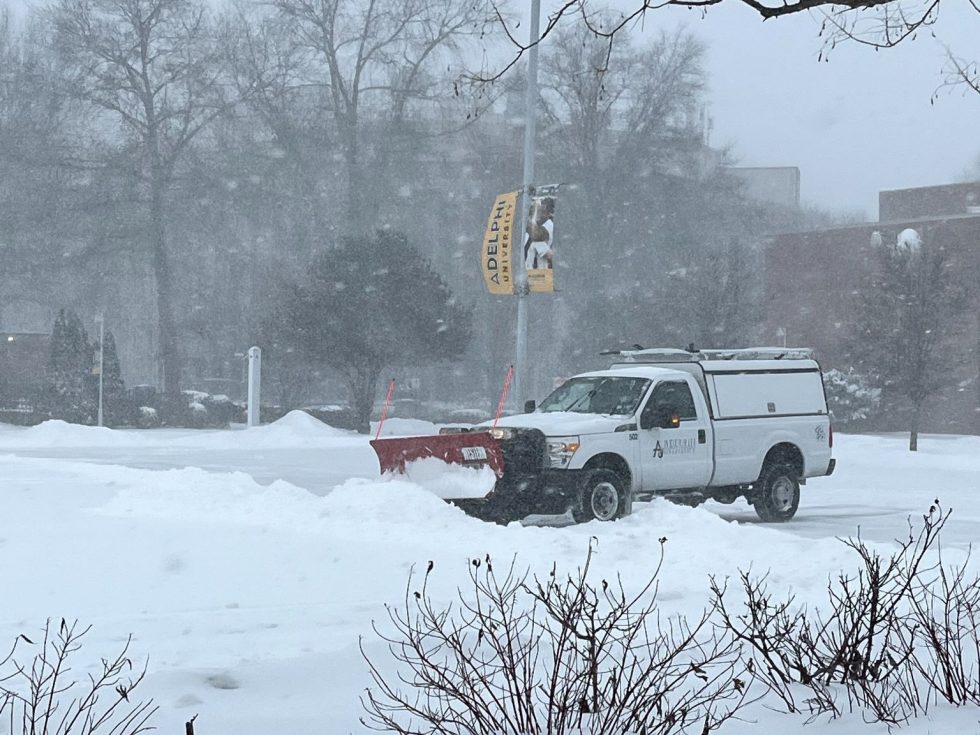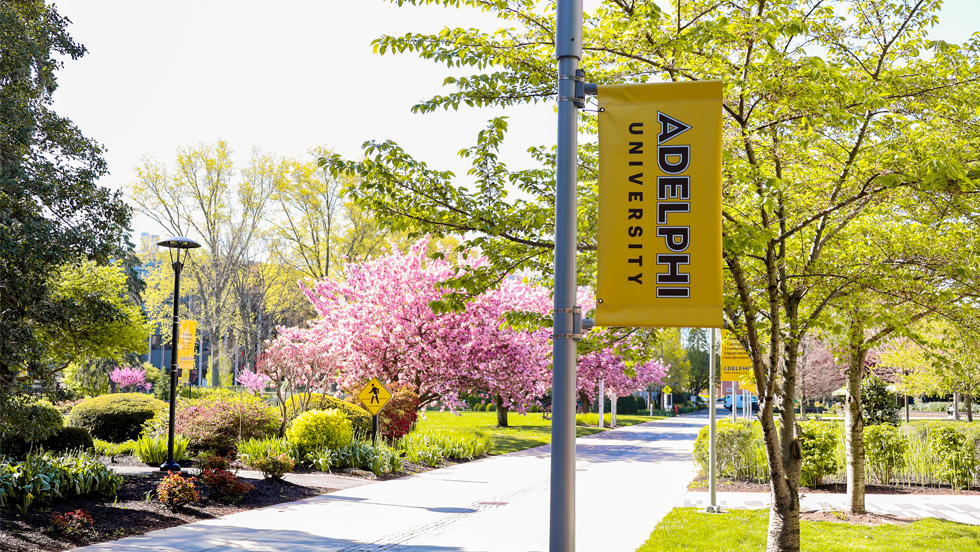News at Adelphi
-
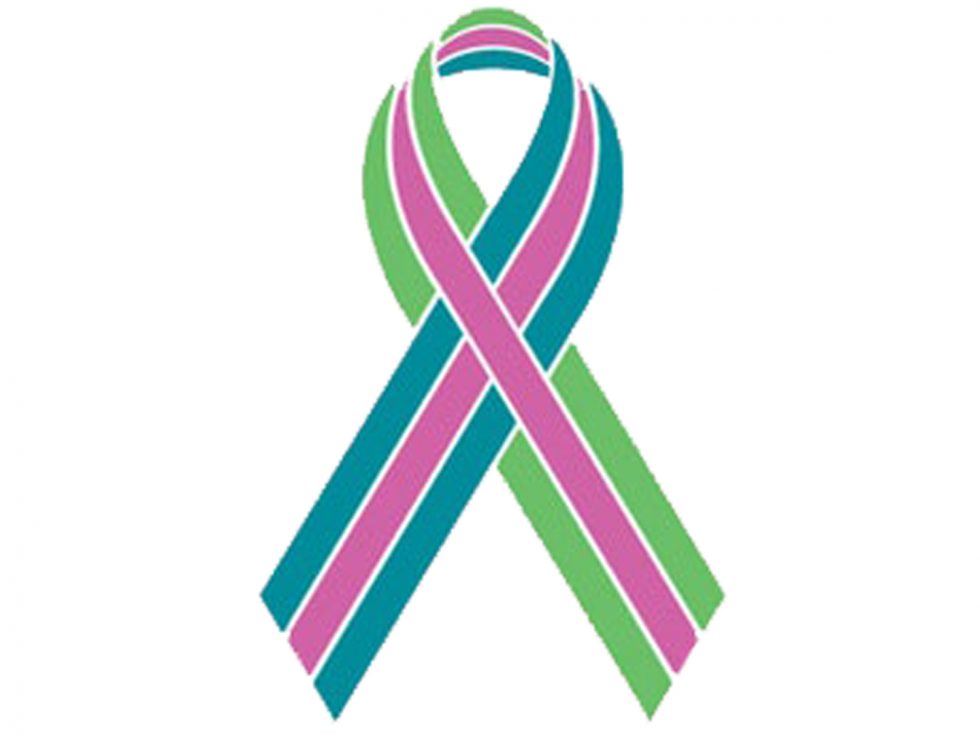 Published:
Published:Dr. Vered Stearns of Weill Cornell Medicine to share insights on emerging treatments and patient care.
-
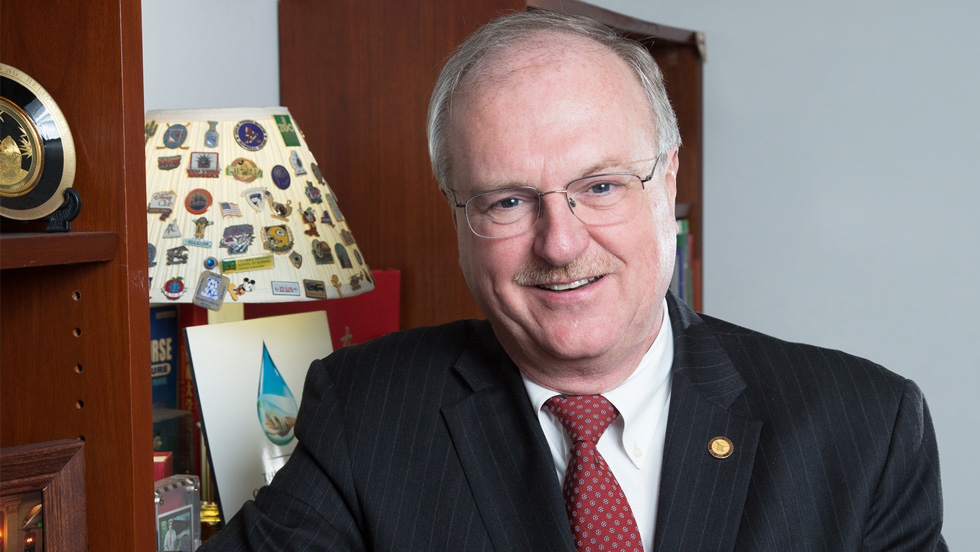 Published:
Published:The Adelphi University community mourns the loss of Patrick Coonan ’78, EdD, dean emeritus of the College of Nursing and Public Health (CNPH), whose visionary leadership, dedication to service and deep love for Adelphi shaped generations of students and the future of healthcare education at the University.
-
 Published:
Published:For three consecutive years, the Adelphi University Ruth S. Ammon College of Education and Health Sciences online master’s degree in education programs have earned a spot in the U.S. News & World Report best online rankings.
-
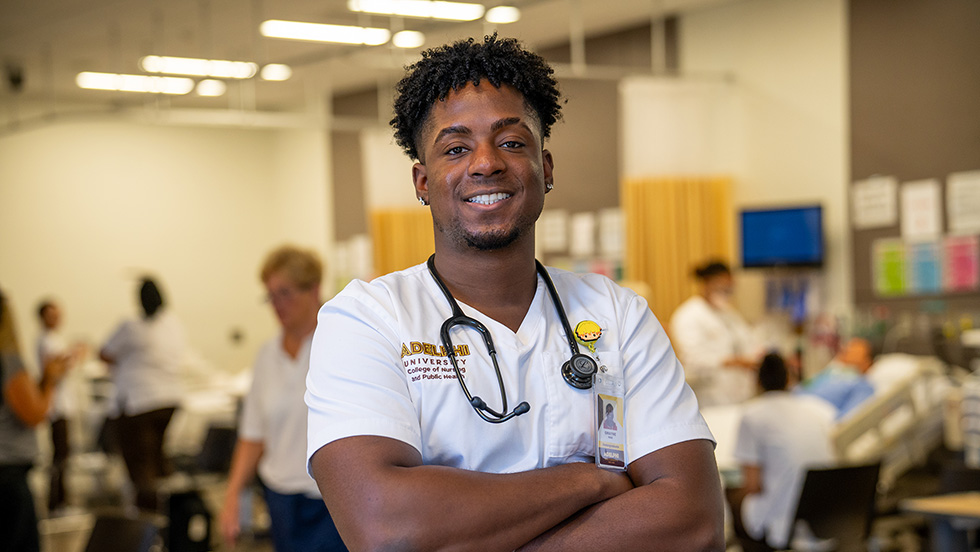 Published:
Published:There’s a growing demand for professionals in the medical field—and a concerning shortage of nurses. Adelphi has a solution: the accelerated nursing program.
-
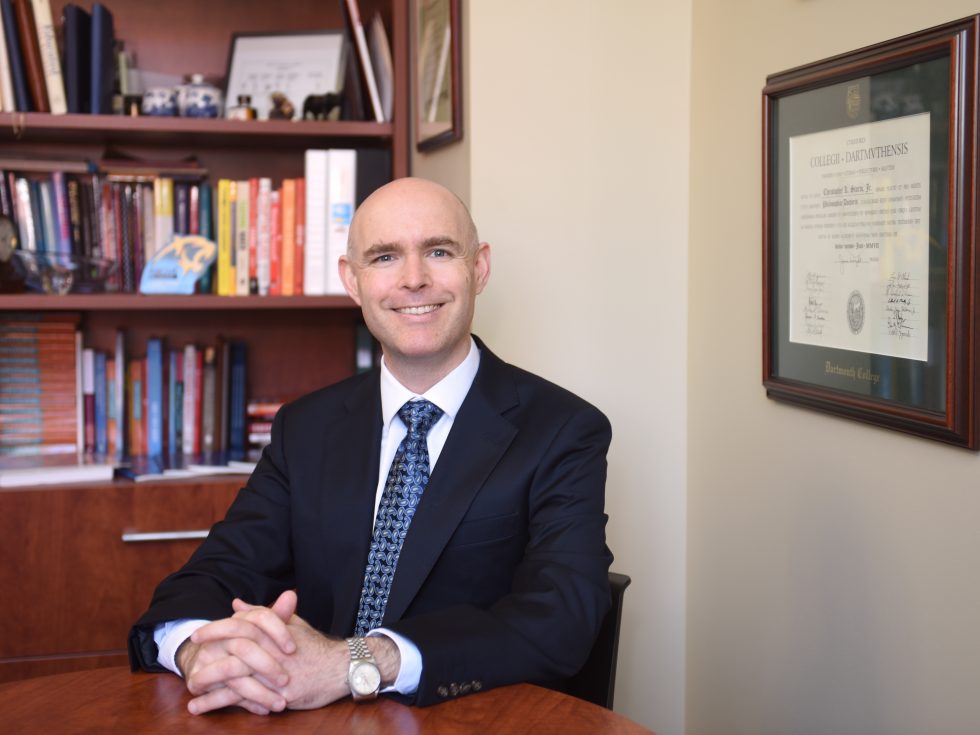
Welcome to Spring 2026 at Adelphi
CategoriesPublished:Dear Students, Faculty and Staff, As we open our doors for Spring 2026, I hope you are feeling rejuvenated and ready for a great semester ahead. Whether you are returning to campus, joining us for the first time or logging in online, welcome to Adelphi! Over the next few months, I encourage you to take…
-
 Published:
Published:Jabari Holder was named Northeast 10 Field Athlete and Rookie of the Week after securing a double victory in the long and triple jump, and breaking Adelphi’s 50-year-old triple jump record.
-
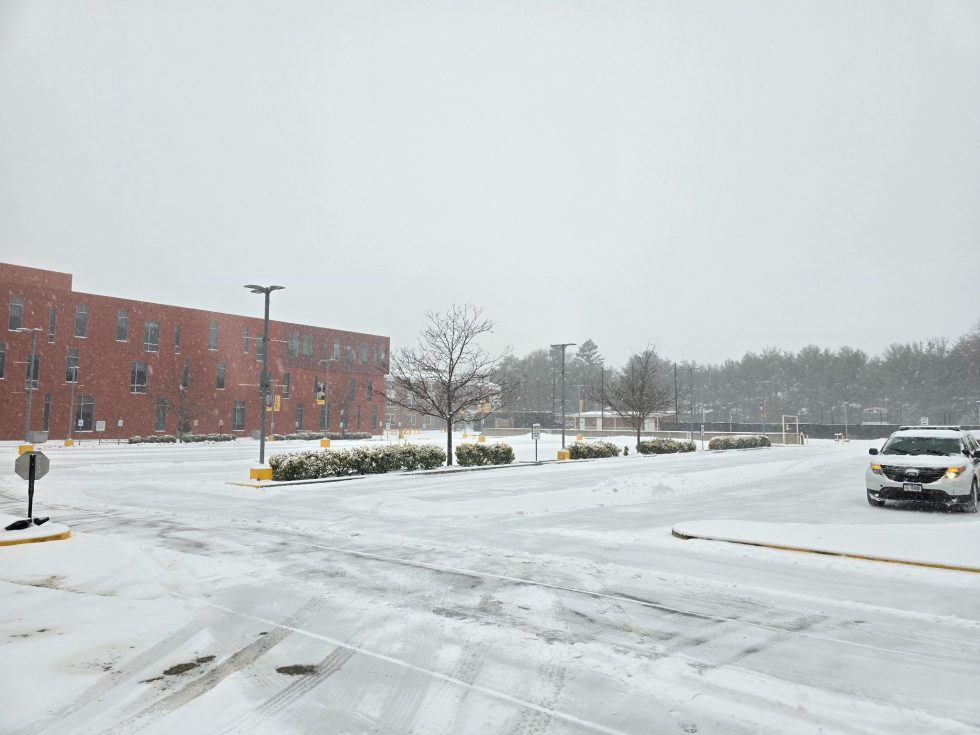 Published:
Published:Dear Adelphi Community, Adelphi University’s Garden City Campus and centers at Hauppauge, Brooklyn (Livingston and Madison) and Hudson Valley are closed on Monday, January 26, 2026, due to the impacts of winter weather. Snow day protocols require that all University facilities and operations in affected locations be closed and programs canceled. This includes all virtual…
-
 Published:
Published:Dear Adelphi Community, As Public Safety and Facilities continue to monitor Winter Storm Fern, we are providing specific updates regarding campus services on Sunday, January 25, 2026. If you have any questions or concerns, don’t hesitate to call the Public Safety Command Center at 516.877.3511. Stay safe and warm! Where to Eat The Market: 9:00am–7:00pm…
-
 Published:
Published:This virtual four-week creative healing experience is for individuals affected by breast cancer and those who care for them.
-
Published:
An Alumna With Momentum: Helping the Next Generation Go the Extra Lap
-
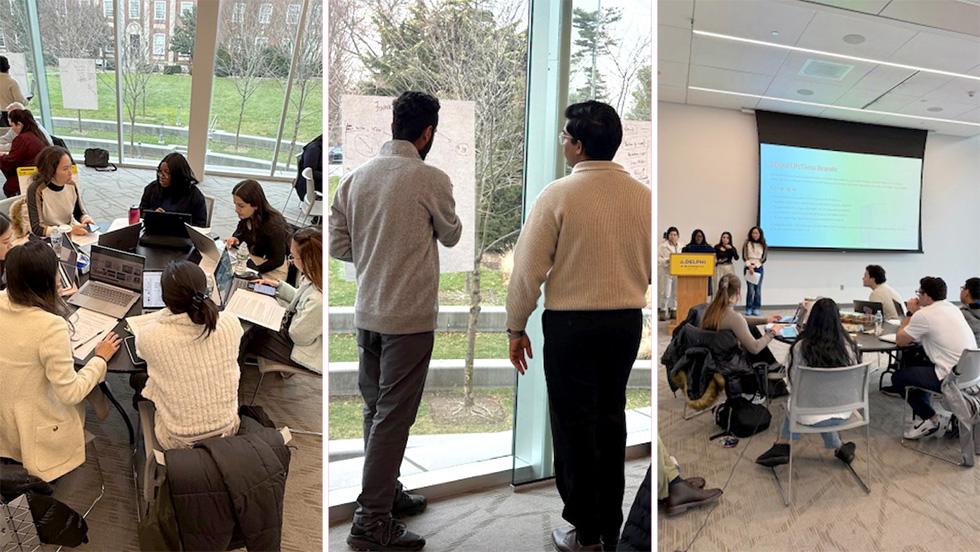 Published:
Published:Intensive sessions give MBA students hands-on experience with negotiation, teamwork and problem-solving—the skills employers look for in business school graduates.
-
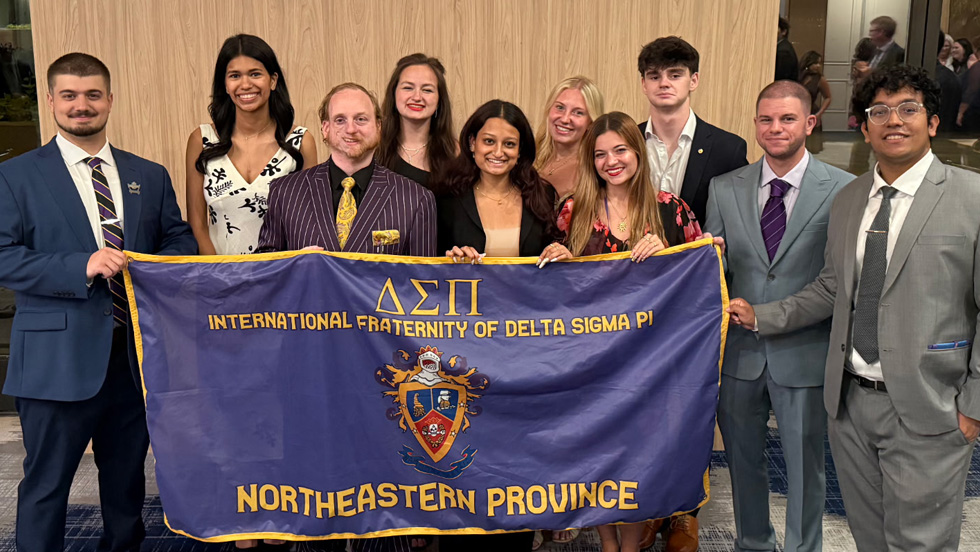 Published:
Published:Members of Adelphi’s Delta Sigma Pi chapter joined hundreds of business students for networking and professional development at the 56th Grand Chapter Congress.
-
 Published:
Published:Dear Adelphi Community, Our Public Safety and Facilities departments are monitoring the potential for accumulating snow that could impact our area tomorrow, January 18. To support our snow removal operations on the Garden City campus, we require all vehicles to be parked in either the Motamed Field garage or the Nexus garage by 10:00 p.m.…
-
 Published:
Published:Adelphi University continues its tradition of nursing excellence with exceptional 2025 NCLEX (National Council Licensure Examination) results.
-
 Published:
Published:The 100 percent acceptance rate of Honors College students who applied to medical school in 2025 highlights the College’s long success in preparing students for professional schools.
-
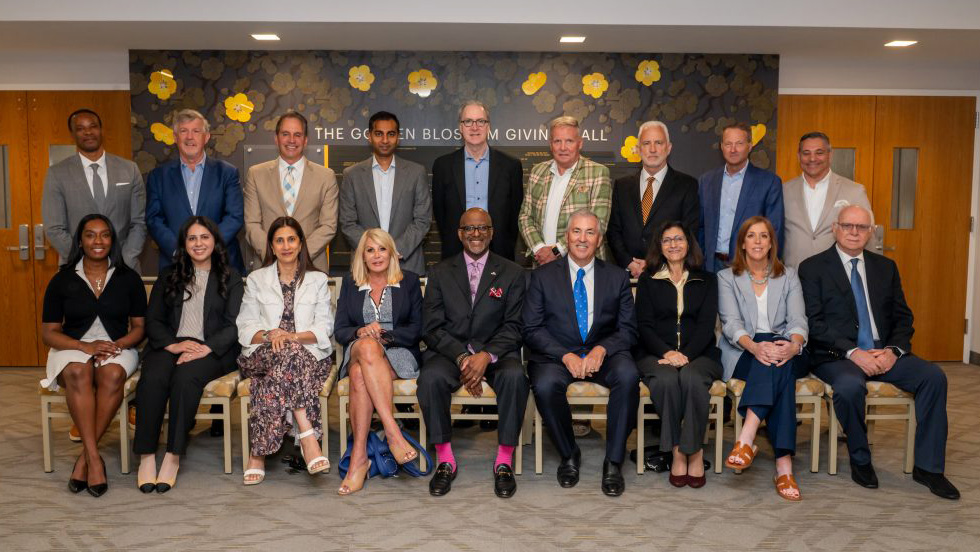 Published:
Published:The Adelphi University Board of Trustees includes a number of members who are uniquely qualified to keep watch over University finances, ensuring that Adelphi remains on solid ground.
-
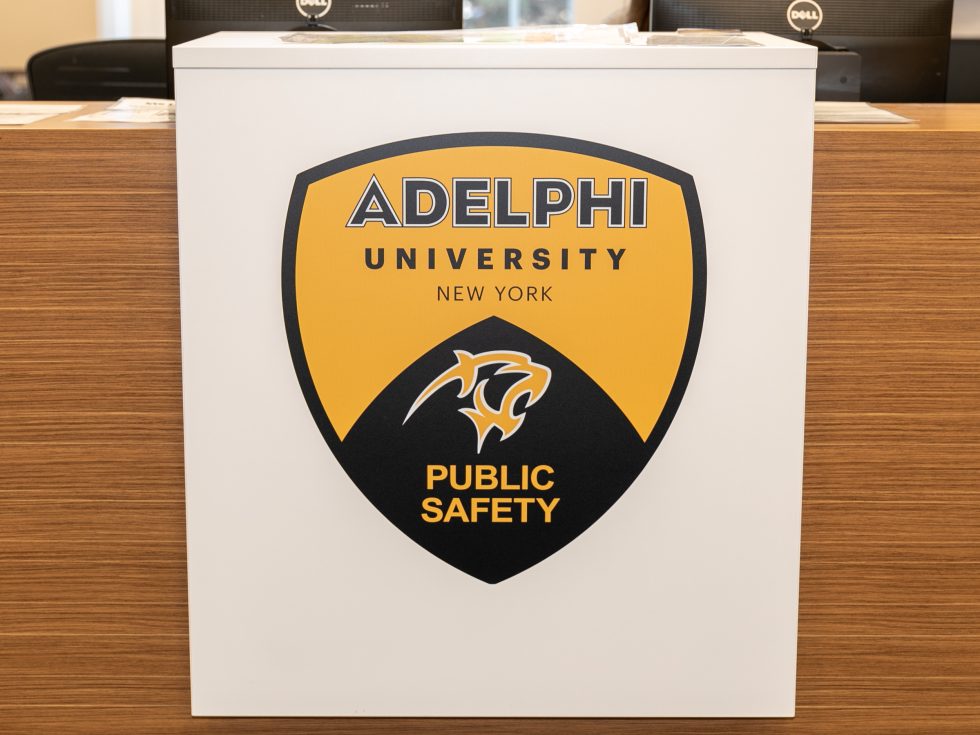
Fire Life Safety Annual 2026 Inspection
CategoriesPublished:The Department of Public Safety and Transportation would like to inform you that the Annual New York State Fire Life Safety Inspections will take place on the Garden City Campus on Tuesday, January 13. We anticipate that the residence hall inspections will take place on January 13 in the morning. The Nassau County Fire Marshal…
-
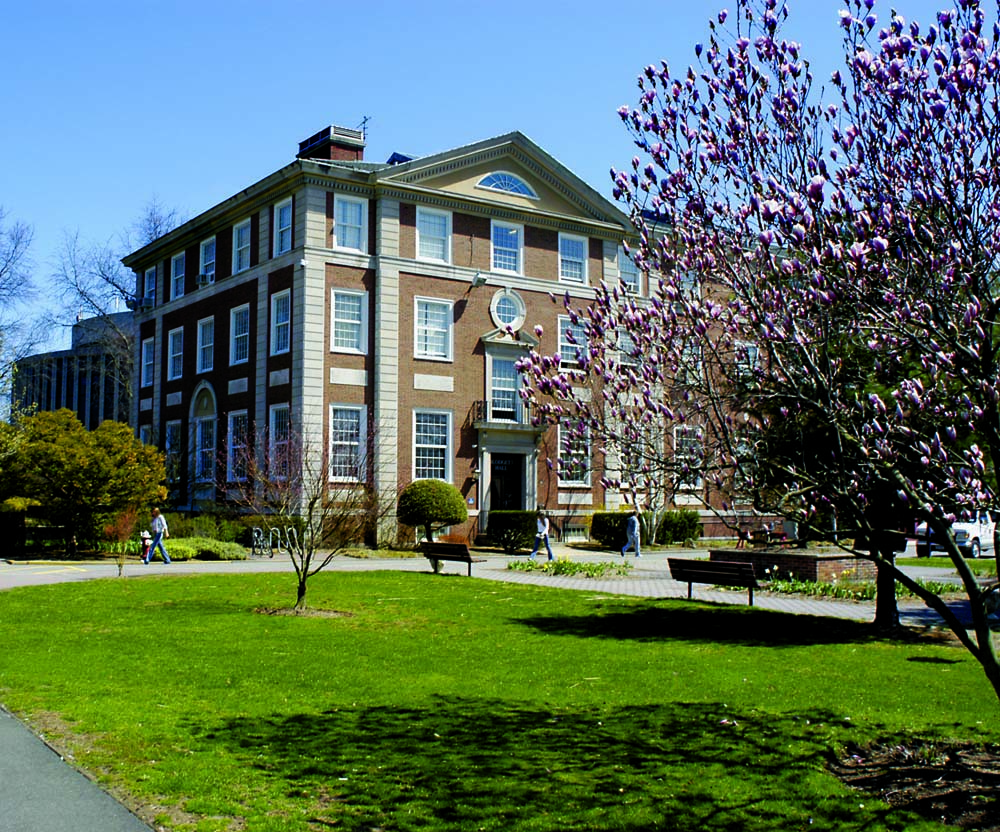 Published:
Published:Dear Adelphi Community, As of today, January 2, 2026, Blodgett Hall is re-opened under normal operating hours. The building’s standard safety protocols are in place. Remaining updates to fire life safety systems will be implemented with minimal disruption. Thank you for your understanding and support during this temporary closure for the safety and wellbeing of…
-
 Published:
Published:Dear Adelphi Community, As of today, December 31, 2025, Blodgett Hall is temporarily closed pending the new Fire Life Safety inspection. Public Safety has appropriate measures in place during this period, including regular fire watch patrols. The system’s formal inspection is scheduled for January 2, 2026, and we will share an update with the community…
-
Published:
Erik Fox-Jackson, MA ’14, program director and clinical assistant professor of art education, argues for the importance of metacognition in students. This story was also published by MSN.
-
Published:
Meredith Whitley, PhD, professor of health sciences, is quoted about the well-being of young people in sports.
-
Published:
Adelphi alumnus Chris Armas ’94 is announced as the new head coach of the Kansas City Current.
-
 Published:
Published:Dear Adelphi Community, Joining a student organization at Adelphi University should be a positive, growth-oriented experience—one grounded in respect, safety, and belonging. To reinforce these values and meet new federal requirements, Adelphi updated its Anti-Hazing Policy in June 2025 in alignment with the federal Stop Campus Hazing Act (under the Clery Act). As part of…
-

A Strange Hole In The Skeleton Of An Ancient Greek Man Helps Researchers To Solve Murder Mystery
CategoriesPublished:Archaeologist and professor of history Anagnostis Agelarakis, PhD, shares his thoughts on a discovery he made about a murder in ancient Greece.
-
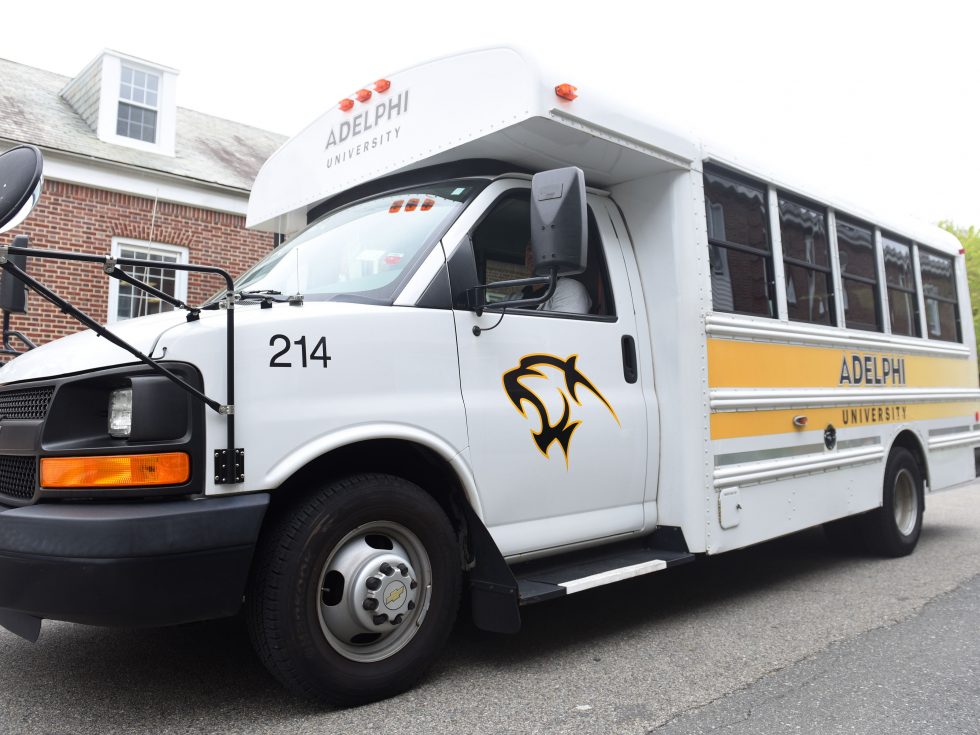 Published:
Published:Dear Adelphi Community, The University will be closed for winter break from Tuesday, December 23, 2025 at 12:30p.m. through Sunday, January 4, 2026, with no Panther Express shuttle service available during this period. The final shuttle service will end at 2:30 p.m. on Tuesday, December 23, 2025. Regular shuttle service will resume the weekend prior…


